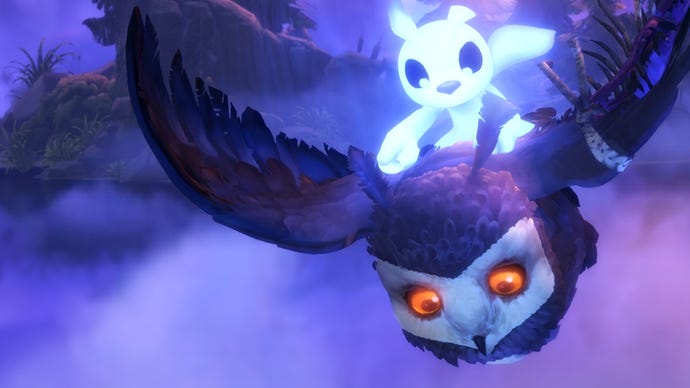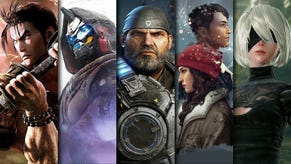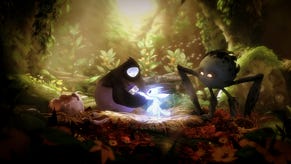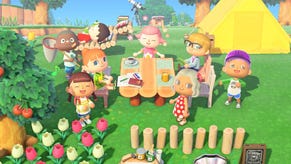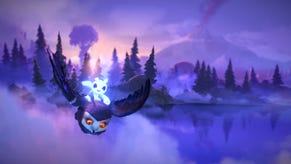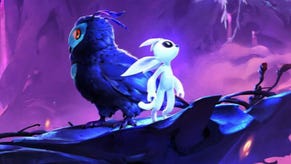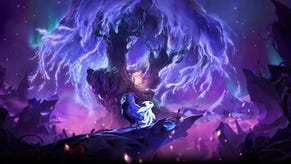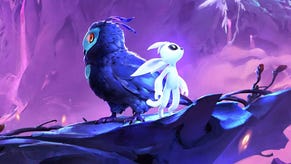Ori and the Will of the Wisps is "Three Times the Scope and Scale" of Blind Forest
We talk to the devs at Moon about delays, growing up as a studio, and success on the Switch.
This article first appeared on USgamer, a partner publication of VG247. Some content, such as this article, has been migrated to VG247 for posterity after USgamer's closure - but it has not been edited or further vetted by the VG247 team.
Back when Ori and the Will of the Wisps first started development in 2017, director Thomas Mahler made a bold promise. "Trust us a little," Mahler wrote on NeoGAF shortly after the debut of its E3 trailer. "The idea is that Will of the Wisps should be to Blind Forest what Super Mario Bros. 3 was to the original Super Mario Bros." He accompanied his post with a smiling emoji-an attempt to signal that he was relaxed and confident about Ori's prospects.
We're three years on now, and Ori and the Will of the Wisps is indeed very impressive. Standing around waiting for an opportunity to talk with senior producer Daniel Smith and composer Gareth Coker, my eye kept being drawn to a looping trailer on one of the screens. It was just so gorgeous. Each successive shot featured a new massive enemy; another wild-looking level. Rendered in 4K, it's one of the best-looking games on the Xbox One.
The successor to 2015's Ori and the Blind Forest, one of the Xbox One's handful of crossover hits, Ori and the Will of the Wisps is a Metroidvania-style exploration game that dramatically expands on the concepts of the original game. "We've really taken a lot of learnings from Blind Forest. In Definitive Edition, we introduced difficulty modes. In Will of the Wisps there are difficulty modes. We also feel like the shard system is a great conduit into people being able to tune their difficulty experience. For example, a relatively inexperienced player can equip shards that will give them stronger defensive capabilities," Smith says.
According to Smith, the sequel is roughly "three times the scope and scale" of Ori and the Blind Forest. He talks about how the combat has been revamped; how shards let players equip unique buffs on the fly, and how it has three times the numbers of cinematics as the original.
"We had a lot of fun taking the entirety of the map from Blind Forest and putting it in the one from Will of the Wisps. It's quite a bit larger," Smith says.
Moon Studios Has Grown Substantially Since the Release of the Original Game
Part of Ori and the Will of the Wisp's scale can be attributed to the growth of Moon Studios, its developer. Moon Studios had only about 20 developers when Ori and the Blind Forest released five years ago, which included contactors. It's about four times that size now.
"Microsoft and Moon have just been a fortunate relationship and partnership to work together," Smith says. "At this point we've been making games with one another for eight years. It's a big success story for Moon. I hope that it's apparent that the sequel has grown quite a bit-nearly in every way. I think Moon's partnership means a lot to Microsoft, and it's just been fun to watch Moon grow, both in headcount, and quality, and in our overall passion."
Ori's scale puts it roughly in line with the "Double-A" studios of old-the middle-class that used to produce smaller scale but nevertheless noteworthy games. This leads to a conversation about the state of independent development now, especially in the wake of the so-called "indie apocalypse." Pitted against 80 person production studios putting out incredible work like Ori, many smaller studios are struggling to compete.
Smith doesn't think that studios have to carry dozens of developers and have high-end graphics to compete though. "There are still powerhouse studios with only a couple people. One of my best friends is James Silva. I adore Salt & Sanctuary, and I still think it's possible for really small teams to make really high-quality content," Smith says.
Coker opines that success in the modern game space isn't always about visual fidelity. "If your game has a unique look, that's how you stand out. I don't think there's many studios that can do this level of fidelity, but there are plenty of studios that come out with art styles that are appealing to look at. It's more about art design as opposed to fidelity in my opinion."
Why Ori and the Will of the Wisps Struggled With Delays
One consequence of Ori's scale was that it suffered delays. Indeed, it was supposed to be out earlier this month, but it ended up being pushed back to March 11. What was behind these delays?
Smith explains, "I don't think people generally consider how difficult it is to make a Metroidvania game. Everything is so interconnected that if you change one aspect of the game, it's just inevitable that it's going to influence the rest. It just takes time to make an experience where we feel it's reached that polish that people want to enjoy."
It's easy to imagine the issues that Smith alludes to. Adjust where you pick up a new ability, say, and it's bound to have a knock-on effect on where you pick up additional weapons; how enemies are balanced, and which areas you can access. Add in the fact that 80 people isn't actually that big of a team in the grand scheme of things, and you have the recipe for a few delays. Moon Studios seems to have been able to weather unexpected release date changes, though.
"Obviously we feel we've set a bit of a bar with Ori and the Blind Forest, and we thought it was important to bring a game to fans that's really a true sequel to Ori and the Blind Forest. And I think we're there. I feel really good about the quality that we're presenting. I hope it's as beloved as Blind Forest, and I hope it's as emotionally impactful," Smith says.
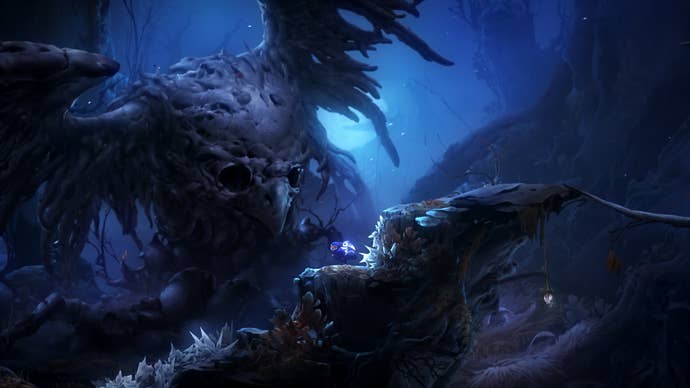
Ori and the Blind Forest "Did Well" on Switch, but Moon Won't Speak to Switch Plans for Will of the Wisps... or Next-Gen
A natural question for Switch fans is whether Ori and the Will of the Wisps will follow its predecessor to Nintendo's platform. Smith says that Ori and the Blind Forest ultimately "did well" on Switch. "I think one of the big things for us is that everybody worked so hard on Blind Forest that we wanted as many people as possible to experience what we created. I think it's exciting to just grow the family. Diehard gamers might have every console, and some gamers might only have one, so I thought it was a nice addition to add to a different pool of gamers who could enjoy the content we created."
As for whether Ori and the Will of the Wisps will make its way to Switch, or if the Switch can even support it given its vastly larger scope, Smith won't say. "We're Switch fans and I love Nintendo Switch, but we don't have anything to announce right now."
The same goes for whether Ori and the Will of the Wisps is already casting an eye toward Xbox Series X. Backward compatibility is certainly a consideration going forward, but for now Moon Studios has nothing to say on the matter.
We're now in the twilight of the Xbox One's seven year run. It hasn't been the best decade for Microsoft, but along with Forza Horizon, Ori has consistently been one of the platform's few bright spots. Even in just the first few hours, where I wandered the world, escaped a giant wolf, and collected power-ups, it easily stood alongside genre giants like Hollow Knight in terms of production quality. Incidentally, Smith says he's a huge fan of Hollow Knight and Dead Cells. Are you surprised?
Ori will end an otherwise rather fraught generation on a positive note for Microsoft. As for Moon Studios, there's no reason to suppose it will stop growing when the Xbox Series X rolls around. The next generation awaits.
Ori and the Will of the Wisps will be out on Xbox One and PC on March 11.
